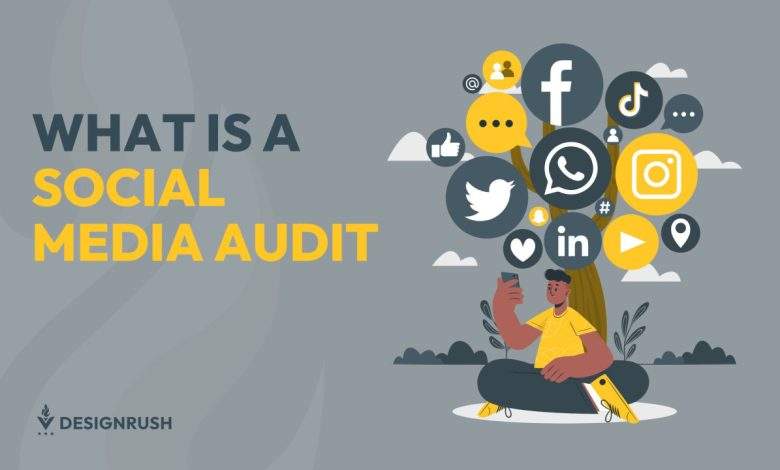
Understanding Social Media Auditing
Social media auditing is a crucial process for businesses and individuals looking to maximize their online presence. It involves evaluating and analyzing various social media platforms to assess their effectiveness, engagement, and overall impact. A social media auditor plays a vital role in identifying strengths, weaknesses, opportunities, and threats within a brand’s social media strategy. This comprehensive guide will help you understand the key aspects of becoming a social media auditor, the necessary skills, tools, and steps to take in order to excel in this field.
Importance of Social Media Auditing
In today’s digital world, social media serves as a powerful marketing tool for businesses, influencers, and brands. However, without proper analysis and strategic planning, efforts can go unnoticed, leading to wasted resources and missed opportunities. A social media audit helps in measuring performance, identifying gaps, and optimizing content to drive better engagement and conversions. It also provides insights into competitors’ strategies, allowing businesses to stay ahead in the industry.
Key Skills Required for Social Media Auditors
To become a successful social media auditor, you must develop a strong set of analytical, technical, and creative skills. Some of the essential skills include:
Analytical Skills
Social media auditors must be proficient in analyzing data and metrics to determine the effectiveness of social media campaigns. Understanding trends, engagement rates, audience behavior, and conversion tracking are critical to making informed decisions.
Attention to Detail
Identifying inconsistencies, content gaps, and areas of improvement requires a keen eye for detail. Auditors must scrutinize every aspect of a brand’s social media presence, including branding, messaging, visuals, and engagement levels.
Knowledge of Social Media Platforms
Each platform operates differently, and understanding their algorithms, best practices, and engagement tactics is essential. A social media auditor must be well-versed in platforms such as Facebook, Instagram, Twitter, LinkedIn, TikTok, and YouTube.
Competitor Analysis
A crucial part of social media auditing is evaluating competitors’ strategies. By analyzing what works for competitors, auditors can provide valuable insights and recommendations for improvements.
SEO and Content Strategy
A well-optimized social media presence contributes to better search engine rankings. Understanding SEO, keyword research, and content optimization helps in creating an effective social media strategy.
Steps to Conduct a Social Media Audit
Define the Objectives
Before starting an audit, it is essential to define the objectives clearly. Whether it is improving engagement, increasing brand awareness, or driving conversions, having a clear goal helps streamline the audit process.
Identify Social Media Channels
List all the social media accounts associated with the brand. This includes official accounts as well as any inactive or unofficial ones that may exist. Ensuring consistency in branding and messaging across platforms is crucial.
Analyze Performance Metrics
Use social media analytics tools to measure key performance indicators (KPIs) such as engagement rate, follower growth, reach, impressions, and conversion rates. Compare these metrics with industry benchmarks to assess overall performance.
Evaluate Content Strategy
Examine the type of content being shared, its relevance, and its engagement levels. Identify which content formats (videos, images, blog posts, etc.) perform best and recommend improvements accordingly.
Assess Audience Engagement
Engagement is a vital metric in social media success. Analyze comments, shares, likes, and direct interactions to understand how well the audience is engaging with the content. Look for patterns in audience behavior and preferences.
Conduct Competitor Analysis
Study competitors’ social media strategies, their content types, posting frequency, and engagement levels. Identifying successful tactics used by competitors can help refine the brand’s social media approach.
Review Branding and Consistency
Ensure that branding elements such as logos, color schemes, tone, and messaging remain consistent across all platforms. Consistency builds brand recognition and trust among followers.
Identify Weaknesses and Opportunities
Highlight areas where the brand is underperforming and suggest actionable steps to enhance performance. Identify emerging trends and new opportunities that can be leveraged for growth.
Generate an Audit Report
Compile all findings into a structured audit report. Provide recommendations, actionable insights, and a step-by-step plan to improve the brand’s social media presence. Present the report with visuals, charts, and data-driven insights for better clarity.
Essential Tools for Social Media Auditing
Using the right tools can streamline the auditing process and provide accurate insights. Some of the most popular social media audit tools include:
Google Analytics
This tool helps track website traffic from social media channels, providing insights into user behavior and conversion rates.
Facebook Business Suite
Offers in-depth analytics for Facebook and Instagram, including audience insights, engagement metrics, and ad performance.
Hootsuite Analytics
A comprehensive tool that allows users to monitor multiple social media accounts, track performance, and generate reports.
Sprout Social
Provides detailed reports on social media engagement, audience demographics, and content performance.
BuzzSumo
Analyzes trending content, helps track competitor performance, and provides insights into content strategy.
SEMrush
A great tool for tracking SEO and keyword performance, helping brands align their social media content with search engine rankings.
Career Opportunities in Social Media Auditing
With the increasing demand for digital marketing experts, social media auditing has become a lucrative career option. Social media auditors can work as:
Freelancers
Many businesses and influencers require freelance auditors to assess their social media performance and provide actionable recommendations.
In-house Social Media Auditors
Large corporations hire in-house auditors to continuously monitor and improve their social media strategies.
Digital Marketing Agencies
Marketing agencies employ social media auditors to assist clients in optimizing their social media presence.
Social Media Consultants
Experienced auditors can work as consultants, helping brands and businesses enhance their social media strategies through expert insights.
Conclusion
Becoming a social media auditor requires a combination of analytical skills, creativity, and knowledge of digital marketing. By mastering social media platforms, using analytical tools, and staying updated with industry trends, one can build a successful career in this field. Conducting regular audits helps businesses refine their social media strategies, improve engagement, and achieve better results. With the ever-growing influence of social media, the role of a social media auditor has never been more critical.



